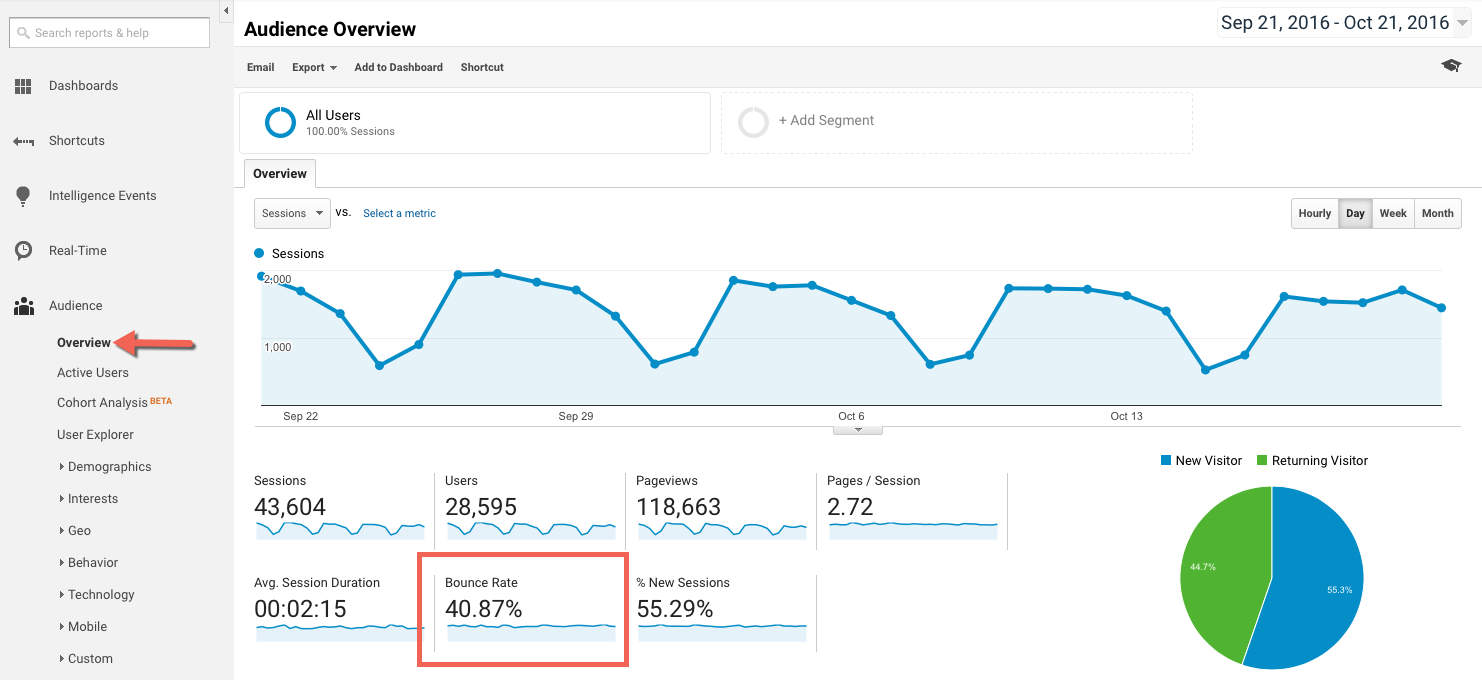The 8-Second Trick For What is Bounce Rate in Google Analytics? - How Can You


What is Bounce Rate? Avoid a Common Pitfall
Understanding bounce rate in Google Analytics - Yoast Things To Know Before You Get This
Bounce rate is an Web marketing term utilized in web traffic analysis. It represents the portion of visitors who go into the website and after that leave ("bounce") rather than continuing to see other pages within the same website. Bounce rate is computed by counting the variety of single page check outs and dividing that by the overall visits.
Bounce rate is a measure of "stickiness." The thinking being that an effective website will engage visitors deeper into the site. Motivating visitors to continue with their go to. It is revealed as a portion and represents the proportion of single page sees to total check outs. Bounce rate (%) = Check outs that access only a single page (#) Overall gos to (#) to the site.
An entry page with a low bounce rate suggests that the page effectively triggers visitors to view more pages and continue much deeper into the website. The Latest Info Found Here indicate that the website is refraining from doing a great job of attracting the ongoing interest of visitors. That means visitors just see single pages without looking at others or taking some type of action within the website before a specified time period.

What Is Bounce Rate? How to Interpret and Work with It

11 Easy Ways to Reduce Your Bounce Rate
On sites where a goal can be fulfilled without seeing more than one page, for example on websites sharing particular understanding on some topic (dictionary entry, particular recipe), the bounce rate would not be as significant for determining conversion success. In contrast, the bounce rate of an e-commerce website could be interpreted in connection with the purchase conversion rate, supplying the bounces are considered representative of sees where no purchase was made.
The Only Guide to The Average Bounce Rate for Every Page on Your Site
Building [edit] A bounce occurs when a web site visitor only views a single page on a site, that is, the visitor leaves a website without checking out any other pages prior to a specified session-timeout takes place. There is no market standard minimum or optimum time by which a visitor should leave in order for a bounce to occur.

